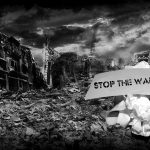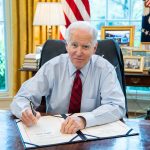In an attempt to stir up old conspiracy theories, a new documentary has brought forward the accounts of several doctors who tended to President John F. Kennedy on the day of his assassination. These medical professionals, featured in the documentary “JFK: What the Doctors Saw,” are now challenging the official narrative, throwing shade on what some consider one of the most scrutinized events in American history.
BREAKING: JFK Assassination Doctors Break Silence, Dispute Key Claim….https://t.co/QZp7w6sP0E
— 🇺🇸🇺🇸Josh Dunlap🇺🇲🇺🇲 ULTRA-MAGA (@JDunlap1974) November 22, 2023
The new film, available to watch on Paramount+, presents the testimonies of seven doctors who were present in the emergency room at Parkland Hospital on that fateful day in 1963. They now question the conclusion reached by the Warren Commission, which pointed the finger at Lee Harvey Oswald as the lone gunman responsible for Kennedy’s death.
Executive producer Jacquelynn Lueth spearheaded this documentary, conducting interviews with the doctors from Parkland. In a recent article for CBS News, Lueth stressed the clarity and precision of the doctors’ memories, untouched by the passage of time. She highlighted their extensive experience in treating gunshot wounds and emphasized that their only motive was to save the president’s life.
The doctors’ recollections, as depicted in the documentary, unveil inconsistencies between their assessments at Parkland and the autopsy images taken at Bethesda. They specifically recall a wound in Kennedy’s neck that seemed to be an entrance wound and an extensive hole in the back of the president’s head, conflicting with the official report indicating that Kennedy was shot from behind.
These conflicting accounts propose the possibility of multiple assailants, challenging the widely accepted belief that Oswald acted alone. Notably, the documentary features an alleged clip where Dr. Malcolm Perry, the surgeon who operated on Kennedy, was purportedly cautioned by an individual believed to be a Secret Service agent against speaking out about the throat wound.
The emergence of these fresh insights from individuals involved in the aftermath of the assassination has reignited the ongoing debate about what transpired in Dallas. Earlier this year, former U.S. Secret Service agent Paul Landis, who was nearby during the assassination, also entered the fray. Landis claimed in an interview with The New York Times that he stumbled upon a nearly pristine bullet in the back seat of Kennedy’s limousine, contradicting the “magic bullet” theory.
Landis recounted concerns about the lack of security at the scene, stressing the urgency of preserving the bullet as crucial evidence. His revelation adds to the web of skepticism surrounding the official version of events.
Regardless of where one stands in the endless debate, it is clear that the intrigue surrounding JFK’s assassination remains as vibrant today as it was nearly six decades ago.




